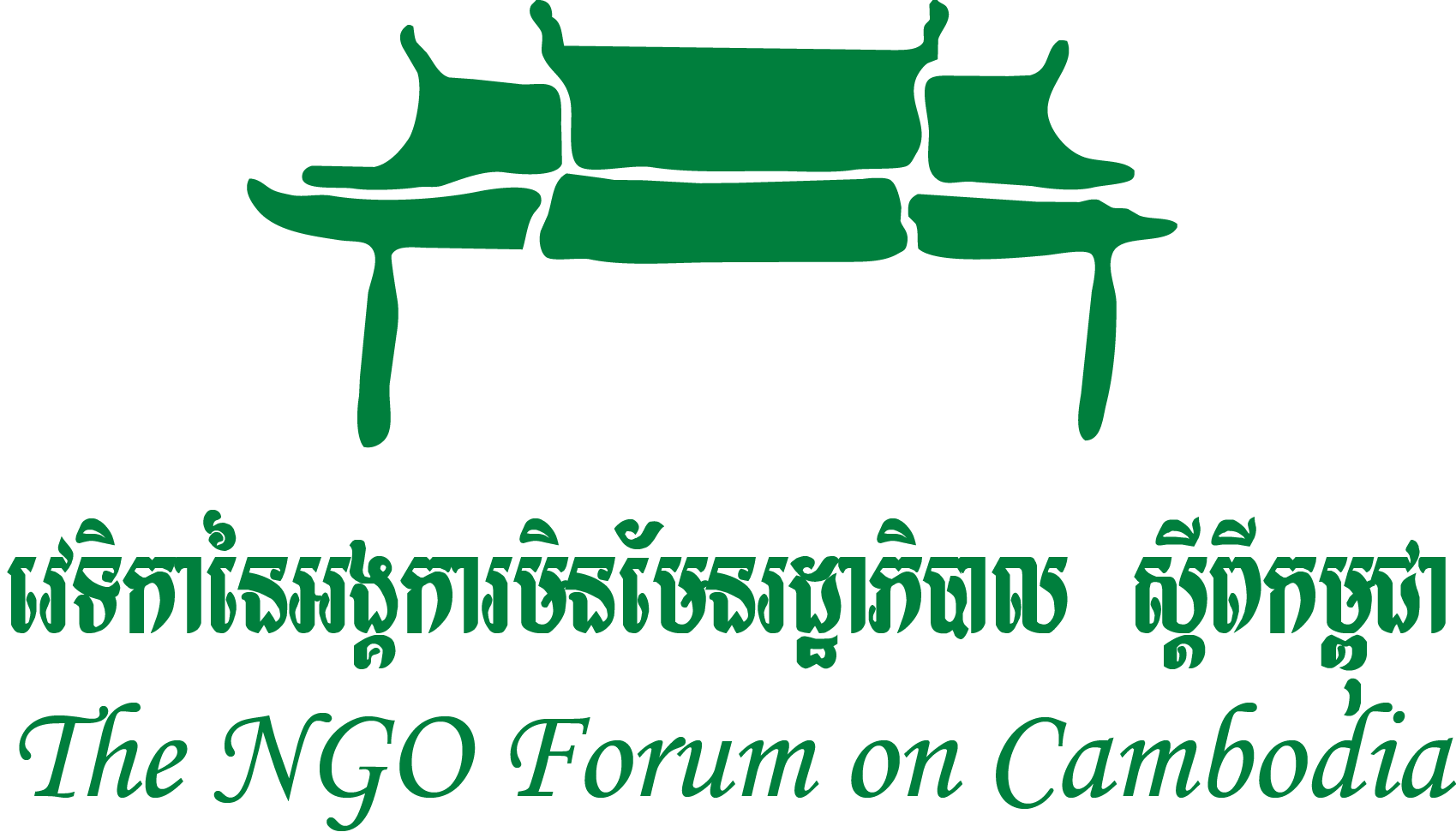There are 10 local and international civil society organizations which are Save the Mekong, International River, CVS, NGOF, 3SPN, CYN, NRD, CDPS, Oxfam and CEPA co-organized Mekong Public Forum- The Mekong We Want! Advancing People’s Partnership for Mekong’s Sustainability on 30 July 2019 at Tonle Bassac 2. There were 230 participants (111 women) who CSOs and representatives from 16 provinces and Phnom Penh, representative from CNMC, Institute of the Fisheries Research of Fishery Administration, EIA Consultant Firm, Independent Researcher, representatives of European youth, students, media journalists as well as representatives from Thailand and Vietnam. The forum provides the opportunity to share experiences from representatives from Cambodia, Thailand and Vietnam of civil society and community to discuss on challenges and solutions.
The first session focused on challenges and solutions from community perspectives, with representatives from Thailand, Cambodia and Vietnam presenting on key challenges they are facing in their communities. It’s clear that hydropower dams are having major and transboundary impacts on communities; and is also exacerbating the impacts of climate change as evidenced by events in July, particularly in northern and northeastern Thailand. Key messages raised by community panelists to address problems and challenges included:
• Developing sustainable energy solutions instead of hydropower, and supporting local livelihoods (VN) • Ensuring that any development project must directly benefit local communities not destroy livelihoods (Cambodia) • Support communities to protect – and adapt to changes in the – Mekong; and also request Thai government to stop buying electricity from dams (Thai)
The second session comprised panelists from Cambodian government agencies, consultants, the EU delegation in Cambodia and the MRC Secretariat. While largely acknowledging the impacts articulated in the community panel session, the panelists noted that: • hydropower was not the only cause of impacts, and there are other factors, including climate change • exploitation and development of Mekong resources important for economic development, and involves trade-offs • The context – and actors involved – have changed • Need to increase access to information and knowledge, focus more on solutions, including identifying channels to ensure messages are heard by decision-makers and bring about change.
The panelists also shared some of the initiatives they are working on or involved in to address challenges e.g various MRC-related procedures, guidelines, strategies and initiatives; Cambodian government laws, regulations, strategies and plans related to climate change and fisheries management; improving impact assessments.
The third session focused on energy futures, drawing particularly on the experience of Vietnam and Cambodia. • GreenID’s provided information on the global energy transition and its relevance for the Mekong and Vietnam in particular, and CSO efforts to advocate for a just transition in Vietnam by combining national policy advocacy with local level energy planning and solutions. • WWF Cambodia presentation highlighted that while the uptake of solar has been slow in Cambodia to date, this could be shifting, which in part has been catalyzed by major blackouts in Cambodia (due to dams not being able to produce enough during dry season). The amount of utility-scale solar commissioned and operating has increased over the past couple of years, and more are planned. • Representative from Green Solar Energy Co. Ltd, which designs and implements small-scale solar systems, shared some of challenges and opportunities for upscaling solar systems in Cambodia.
It’s clear that more sustainable and equitable alternatives to destructive large-scale hydro and coal exist and are increasingly cost-competitive. Presentations from Vietnam and Cambodia also showed how non-hydro renewables are being implemented to varying degrees, and that opportunities exist to increase uptake.
The fourth session shared NGO and community perspectives on issues related to standards and safeguards, including how to ensure the Mekong is developed more sustainably and fairly. Panellists responses include: • Promoting and strengthening standards and safeguards related to meaningful community participation, social and environmental impacts (e.g. World Commission on Dams, Free, Prior and Informed Consent) • Strengthening community, youth and civil society networks within and between countries • More attention to prevention rather than cure. That is properly examine alternatives to destructive projects, • Reduce reliance on large-scale dams and focus more on alternatives. • More comprehensive and participatory impact assessments, including transboundary • Ensure communities have access to information prior to decisions being made, and support community efforts to exercise their rights • Increased dialogue between different actors, which also provide space for community voices to be heard
Key Output/Outcome
The main output is that the forum helped increase awareness of and attention to problems of – and alternatives to replace – large-scale hydropower dams in the Mekong basin. As evidenced by the Mekong we want banner and media coverage (see below), the messages are consistent with Save the Mekong Coalition.
• The Mekong We Want Banner, which collected comments from participants. Participant’s messages can be grouped into few key points: o A healthy Mekong is important and should be protected (e.g. references to Mekong as mother, bloodline, lifeline; fish for nutrition etc) o We do not want hydropower dams on the Mekong (e.g. references to impacts being greater than benefits/profits; impacts on people, no dam, no sambo dam etc) o Alternatives to hydropower exist and should be implemented (e.g. references to solar, environmentally friendly alternatives, energy efficiency) o Improve participation and consideration of impacts (e.g. reference to FPIC, EIA) • Media coverage of the event by Khmer Times, which captures some of key messages in the forum: https://www.khmertimeskh.com/50628833/mekong-river-countries-urged-to-reconsider-hydropower-dams/
What next?
The key issues and messages will help inform follow-up activities and actions in the coming months, including but not limited to: Cambodia People’s Forum, ASEAN People’s Forum, Priority Actions identified at the Save the Mekong Coalition meeting, which included various actions around alternative energy.





